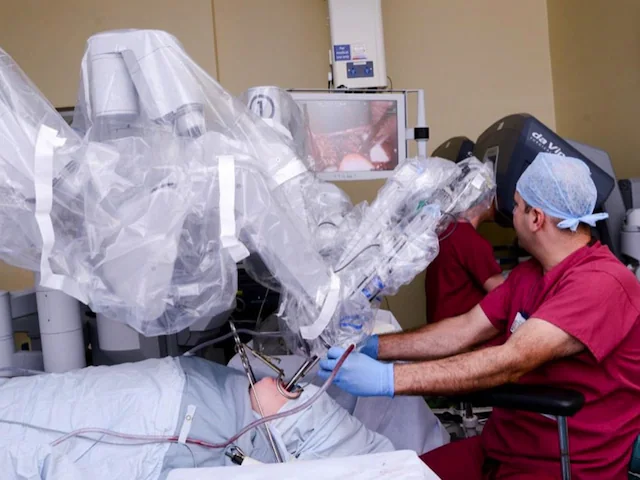Esophageal cancer, a malignancy of the esophagus (the muscular tube connecting your throat to your stomach), often goes unnoticed until later stages. This silence can be attributed to a lack of awareness and the subtlety of early symptoms. Yet, with knowledge and vigilance, we can turn the tide against this aggressive disease. This article sheds light on esophageal cancer, focusing on dysphagia, a common symptom, and explores the potential of robotic-assisted surgery as a treatment option.
Esophageal cancer arises when malignant cells develop in the tissues of the esophagus. Our esophagus acts like a muscular tube, a one-way street for food traveling from mouth to stomach. Esophageal cancer disrupts this system.
Abnormal cells take over, either in the squamous cells (often linked to smoking and alcohol) or the glandular cells (sometimes associated with a precancerous condition called Barrett’s esophagus).
Notorious for its silent progression, this type of cancer often remains asymptomatic until reaching advanced stages. When symptoms do manifest, they typically include difficulty swallowing (dysphagia), unintended weight loss, chest pain, and regurgitation.





More Stories
Traditional and Contemporary Delights: Try These Sandesh Recipes From Kolkata’s Finest
Can Salt Water Eliminate Underarm Odour? Experts Debunk Myth
Irfan Saiyed: The Rising Star of Indian Tech YouTube